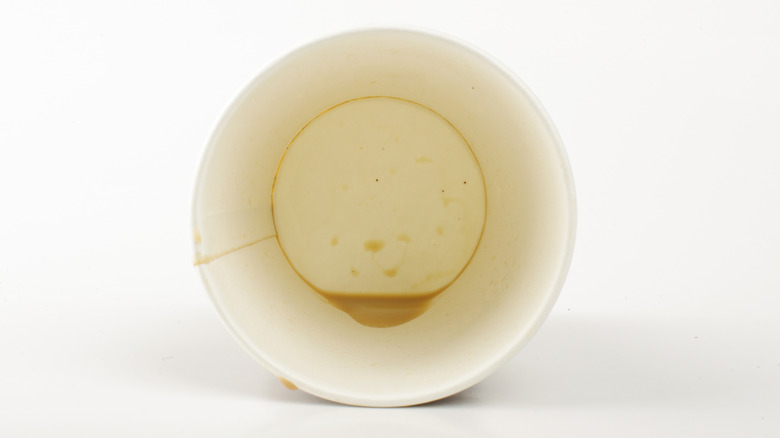Disposable Coffee Cups May Be More Harmful To Your Health Than You Think
If you start your days with a cup of coffee, you're not alone. In fact, according to data gathered from the National Coffee Association (NCA) in 2020, the number of Americans who drank coffee was on the rise. Research from the organization showed that 62% of Americans drank coffee every day, consuming on average, a little more than three cups per day. Interestingly, 48% of those who drink coffee on a daily basis get their coffee away from home, from a drive-through, cafe, coffee shop, or other type of business.
Grabbing a cup of coffee on the go might be convenient (and, let's face it, delicious!), but it turns out that it could be causing you more harm than you realize. It's not so much the coffee itself that is the problem, but what it is served in. New research shows that disposable cups might be a hazard to your health.
The lining of the cups is the problem
Disposable coffee cups are lined with a thin coating of plastic that helps coffee stay hot while also keeping the cups from leaking. This lining is the source of tiny nanoparticles that are released when hot liquid is poured into them. A recent study published in the journal Environmental Science & Technology showed that as many as 5 trillion nanoparticles were found in every liter of hot coffee (per U.S. News & World Report). To put that into perspective, a liter is 34 ounces, and a 12-ounce coffee cup is almost ⅓ of a liter.
The danger microplastics pose to human health is nothing new, but the amount of them found in the lining of disposable cups raises concern among some researchers. Rolf Halden, director of the Center for Environmental Health Engineering at Arizona State University, told HealthDay that the particles are so small that they could end up lodged in organs and tissues, and currently, there are no tools to measure what kind of impact they have on the human body. He compared the microscopic particles to asbestos, noting that asbestos isn't necessarily harmful until the tiny particles are inhaled and become stuck in human tissue. People concerned about nanoparticles should take a metal or ceramic travel mug to their favorite cafe instead of using the to-go cups.


